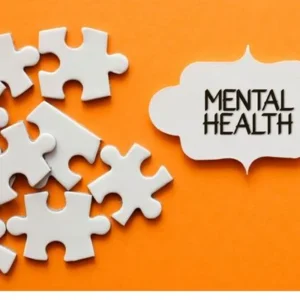International Youth Day 2025 celebrates the theme “Local Youth Actions for the SDGs and Beyond,” spotlighting the vital role of youth in driving sustainable development and justice. Across countries like Brazil, South Africa, Nigeria, and Kyrgyzstan, young women leaders are demonstrating how grassroots action can lead to global change. UN Women highlighted four changemakers using feminist leadership to bring the Sustainable Development Goals (SDGs) to life in their communities. Their message is unified and clear: to make real progress, the world must invest in youth-led initiatives—especially those led by young women and girls.
In Brazil, Natalia Tsuyama, a climate justice advocate from the Cerrado region, emphasizes that climate justice is about more than emissions; it’s about power, territory, and dignity. Through her work with UN Women and local governance in Belo Horizonte, she has helped push for better public services, school climate education, and youth representation. She believes youth activism plays a crucial role in keeping global promises like the SDGs accountable and grounded in real community needs. For Tsuyama, even small acts of climate activism can turn collective grief into action and empowerment.
In South Africa, Keitumetse Fatimata Moutloatse founded the Black Womxn Caucus at 17 in response to gender-based violence. Her organization helped launch #TheTotalShutdown, a national movement that contributed to South Africa’s national plan on gender-based violence and femicide. Moutloatse emphasizes the importance of youth having access to information, decision-making spaces, and recognizing that normalized violence is unacceptable. She calls for young people to engage directly in policymaking, advocating that policies should reflect the lived realities of youth—especially the marginalized.
Eva Chisom Chukwunelo, a Nigerian disability rights advocate and founder of Kry8Impact Africa, uses storytelling and photography to challenge stereotypes and celebrate disabled identities. Her advocacy arose from her own experience as an amputee who saw little representation in public life. She believes inclusion is justice—not charity—and urges young allies to actively collaborate with, not just advocate for, people with disabilities. Through storytelling, she says, we change perceptions and reclaim visibility.
In the Kyrgyz Republic, Asel Kubanychbekova is tackling economic inequality by empowering women through entrepreneurship. Through her organization She Starts, she has trained over 10,000 women, mainly in rural areas. Recognizing the disproportionate exclusion of young women from economic decision-making, she built a national coalition that secured legal recognition for women entrepreneurs. She also helped establish a Special Advisory Council under the Ministry of Economy, bringing women directly into policymaking spaces. For Kubanychbekova, real empowerment means shaping the future—not just being heard.
Today’s youth generation—1.8 billion strong—is the largest and most connected in history. Yet for the SDGs to succeed, young people must be engaged as partners and leaders, not just as beneficiaries. Whether through climate justice, gender equality, disability rights, or economic inclusion, youth are already creating solutions that matter.
On this International Youth Day, the global call is clear: support youth-led movements, amplify young voices, fund their initiatives, and ensure their representation at every level of decision-making. Especially for adolescent girls and young women, the time to lead is now. Supporting youth is key to shaping a more just, inclusive, and sustainable future.







